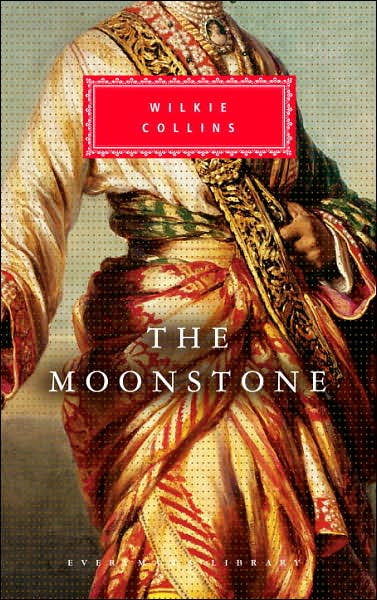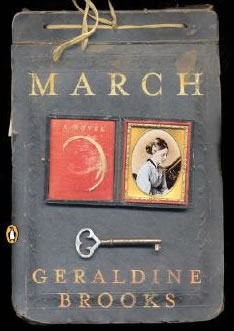Tagged by Susan of Bloggin' 'bout Books
Meme by Eva of A Striped Armchair
By the way, can anyone tell me where the word "meme" comes from? Is it short for something? Does it indicate "me" "me" because we answer questions about ourselves? I am clearly ignorant of some of this terminology! I just know they can be lots of fun!
Which book do you irrationally cringe away from reading, despite seeing only positive reviews?Lolita by Nabokov. It's in the top ten of many "best" lists, and it's my local library's pick for the classic's book club in February, but I don't know if I could enjoy a book about an older man being obsessed with a young girl.
If you could bring three characters to life for a social event (afternoon tea, a night of clubbing, perhaps a world cruise), who would they be and what would the event be?My idea of a social event is an evening at home! But who would I invite? Will Ladislaw of
Middlemarch (dreamy!), Levin of
Anna Karenina (we could really bond), and Snape of
Harry Potter(to tell him I never doubted him, and perhaps suggest some good shampoo.)
(Borrowing shamelessly from the Thursday Next series by Jasper Fforde): You are told you can't die until you read the most boring novel on the planet. While this immortality is great for awhile, eventually you realize it's past time to die. What book would you expect to get you a nice grave?Of Human Bondage by Maugham. I read 300-400 agonizing pages before I accepted the fact that I didn't need to torture myself any longer.
Come on, we've all been there. What book have you pretended, or at least hinted, that you've read, when in fact you've been nowhere near it?
Usually, it's the opposite for me--books that I'm embarrassed to admit I've read!
As an addition to the last question, has there been a book you really thought you had read only to realize when you read a review about it/go to "reread" it that you haven't? Which book?My memory is so bad I can't remember one!
You're interviewing for the post of Official Book Advisor to some VIP (who's not a big reader). What's the first book you'd recommend and why? (If you feel like you have to know the person, go ahead and personalize the VIP)
To Kill A Mockingbird--to me one of the most perfect books every written.
A good fairy comes and grants you one wish: you will have perfect reading comprehension in the foreign language of your choice. Which language do you go with?
I don't know--I'm still trying for perfect reading comprehension in English! Other than that, I would pick Russian.
A mischevious fairy comes and says you must choose one book that you will reread once a year for the rest of your life (you can read other books as well). Which book would you pick?That is a really hard question!! For a geeky answer I would say
The Lord of the Rings. For mental health I would say
Don't Sweat the Small Stuff, and It's All Small Stuff (I have anxiety issues!). For a hopelessly romantic answer I would say
Jane Eyre. To keep my parenting in line I would say
Parenting With Love and Logic. I know the book blogging community, and all its challenges, have pushed my reading borders. What's one "bookish" thing you discovered from book blogging (maybe a new genre, or author, or new appreciation for cover art - anything)?I have just been relieved to find out that there are others who are just as obsessed with books as I am! I have found that it is hard to resist reading challenges!
The good fairy is back for one final visit. Now, she's granting you your dream library! Describe it. Is everything leatherbound? Is it full of first edition hardcovers? Pristine trade paperbacks? Perhaps a few favorite authors have inscribed their works? Go ahead - let your imagination run free.Well, as long as we're talking about fairies and magic, my dream library would go with me wherever I went, so that if I were waiting in line at the store, driving kids around, waiting at the doctor's office, I would have any book available at the snap of a finger. I would want access to any audiobooks, (currently I am at the mercy of what the library has.) I do have an irrational weakness for books that have the rough-edged pages. Is there a technical name for those? Sadly, I would have to admit that I would want a refrigerator in my library. And maybe a permanent chef. And I would want it to be soundproof.
 If only I could think of myself as an appliance (most appropriately a refrigerator), I know I would take care of myself just like the manual says to! At least that's what Roizen and Oz are getting at with this book. In each chapter, they explain the way each different system of the body works, and what can be done to keep up the maintenance of your body and live longer (and better). It is interesting stuff, told in understandable ways, with a bit of overkill on attempts at being humorous. There are lots of cartoonish illustrations, with cutesy names of anatomical parts that to me just adds confusion. (I was an anatomy tutor in college, but all that unused information has been stored deep, deep down in my brain, never to emerge--unless of course I eat the suggested foods and change up my routines regularly and all of the other advice in Chapter 3.) It is very down-to-earth health advice that I will try to follow. There is of course a diet and exercise plan at the end with some yummy sounding recipes. I'm just hesitant to add them to my ever-growing "recipes-to-try" list, that is almost, but not quite, as long as my books to-be-read list!
If only I could think of myself as an appliance (most appropriately a refrigerator), I know I would take care of myself just like the manual says to! At least that's what Roizen and Oz are getting at with this book. In each chapter, they explain the way each different system of the body works, and what can be done to keep up the maintenance of your body and live longer (and better). It is interesting stuff, told in understandable ways, with a bit of overkill on attempts at being humorous. There are lots of cartoonish illustrations, with cutesy names of anatomical parts that to me just adds confusion. (I was an anatomy tutor in college, but all that unused information has been stored deep, deep down in my brain, never to emerge--unless of course I eat the suggested foods and change up my routines regularly and all of the other advice in Chapter 3.) It is very down-to-earth health advice that I will try to follow. There is of course a diet and exercise plan at the end with some yummy sounding recipes. I'm just hesitant to add them to my ever-growing "recipes-to-try" list, that is almost, but not quite, as long as my books to-be-read list!























